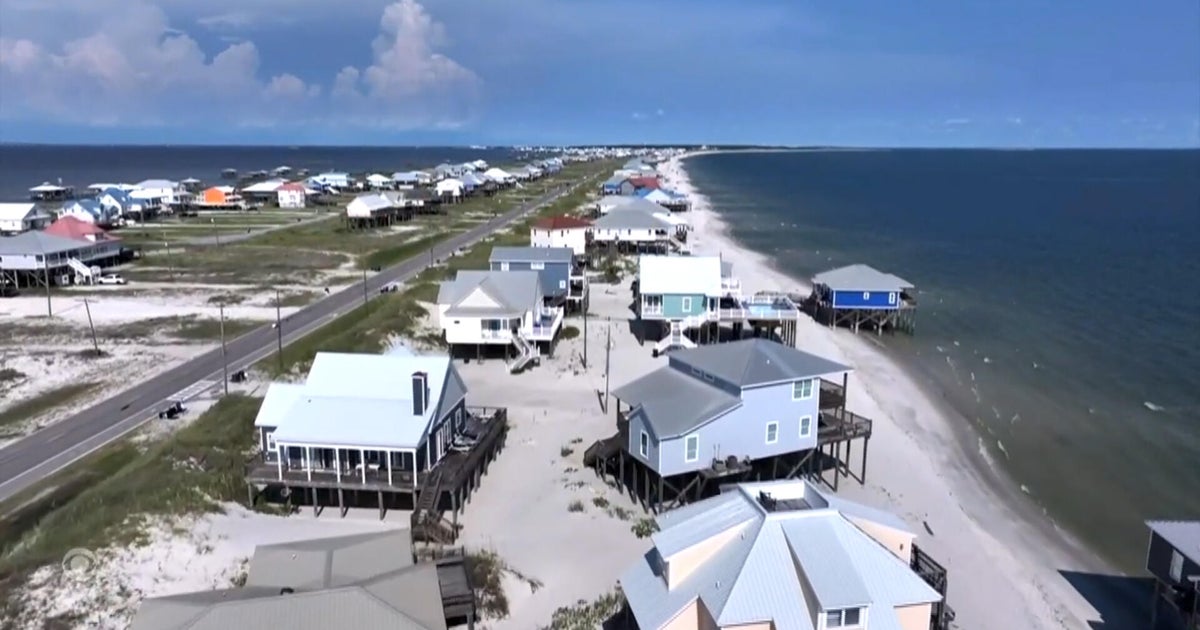This week marks 20 years since Hurricane Katrina devastated the Gulf Coast, killing nearly 1,400 people. Today, some communities are still struggling to recover. Kati Weis reports from Alabama's Gulf Coast.
Why it matters
- Hurricane Katrina was one of the deadliest natural disasters in U.S. history, resulting in significant loss of life and property.
- The aftermath of the hurricane exposed systemic vulnerabilities in disaster preparedness and response, affecting vulnerable populations disproportionately.
- Many communities in the Gulf Coast region are still in the process of recovering, highlighting the long-term impact of such disasters on local economies and social structures.
This week, we reflect on the 20th anniversary of Hurricane Katrina, a catastrophic event that forever altered the landscape of the Gulf Coast. With nearly 1,400 lives lost and widespread destruction, the impact of the hurricane continues to be felt, particularly in many communities that are still grappling with the long road to recovery.
As Kati Weis reports from Alabama's Gulf Coast, the memories of that fateful day in August 2005 linger vividly for those who experienced the devastation firsthand. In towns and cities along the coast, the scars of the disaster can still be seen, manifested in crumbling infrastructure and the emotional toll carried by survivors. Many residents who lost their homes and livelihoods are still fighting to rebuild their lives, while others face the haunting memories of loved ones lost.
The devastation wrought by Hurricane Katrina was not limited to immediate destruction; it also laid bare the vulnerabilities in disaster preparedness and response systems. The hurricane disproportionately affected low-income and marginalized communities, highlighting existing inequalities and the urgent need for comprehensive disaster planning. Local leaders and activists continue to advocate for policies that address these systemic issues, pushing for better resources and support to ensure that communities are better equipped for future disasters.
In the years following Katrina, significant federal and state efforts were made to assist in rebuilding. However, many argue that the response was inadequate and failed to address the root causes of vulnerability in affected areas. As residents in Alabama and other parts of the Gulf Coast reflect on the past two decades, they express a mix of gratitude for the progress made and frustration over the shortcomings that remain.
For some, the recovery has been a story of resilience. Community organizations have sprung up, providing support to those still in need, while local businesses are slowly beginning to thrive again. However, for others, the challenges are all too real. Housing shortages, financial instability, and ongoing mental health issues remain prevalent, complicating the recovery process.
As we mark this significant anniversary, it is crucial to recognize that while much has been done, the journey towards full recovery is far from over. The stories of those affected by Hurricane Katrina serve as a reminder of the importance of community, solidarity, and the need for ongoing support and investment in disaster preparedness.
Community leaders emphasize the importance of listening to the voices of those who lived through the disaster, ensuring that their experiences and needs are recognized in future planning efforts. The resilience shown by residents is commendable, but it must be matched by a commitment from governmental and non-governmental organizations to provide the necessary resources to address ongoing challenges.
As we reflect on the two decades since Hurricane Katrina, it is clear that the lessons learned must guide us in our efforts to safeguard communities against future disasters. The strength and determination of those who survived Katrina will continue to inspire new generations, reminding us of the importance of building a more equitable and resilient society.
In a region where the echoes of Hurricane Katrina still resonate, it is imperative that we honor the memories of those lost and continue to support the living in their quest for recovery and justice. The journey may be long, but the spirit of the Gulf Coast communities remains unbroken.











